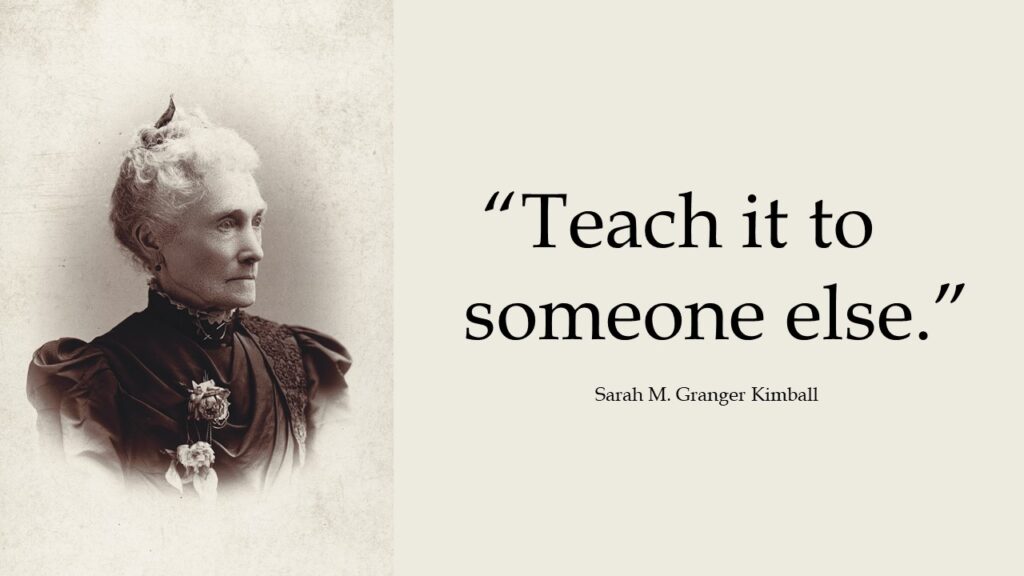Suppose, for a moment, that someone in leadership asks you to do something that goes against your own moral compass. What should you do? How should you respond? Are we obliged to obey each teaching that comes to us from our Church leaders?
Sarah Melissa Granger was one of the earliest members of the Church of Christ founded by Joseph Smith in 1830, and remained faithful throughout her life. She was prominent in both the Relief Society and the women’s suffrage movement, befriending Susan B. Anthony and becoming the first President of the Utah Women’s Suffrage Association. Yet with all this, an incident early in her life demonstrates the value of speaking truth to power.
Sarah married Hiram Kimball, a non-member of the Church, in 1840, and bore her first child soon thereafter in 1841. During this time, Joseph Smith and others were experimenting with polygamy, thinking it was a divine principle, necessary for the Church. She tells a remarkable story in her own words:
Early in the year 1842, Joseph Smith taught me the principle of marriage for eternity, and the doctrine of plural marriage. He said that in teaching this he realized that he jeopardized his life; but God had revealed it to him many years before as a privilege with blessings, now God had revealed it again and instructed him to teach it with commandment, as the Church could travel (progress) no further without the introduction of this principle. I asked him to teach it to some one else.[1]
Sarah had no interest in this “principle,” as it would go against her own marriage and family. Her moral compass was intact. Sarah continues to say that Joseph Smith looked at her with reproof, and asked, “Will you tell me who to teach it to? God required me to teach it to you, and leave you with the responsibility of believing or disbelieving.” In spite of Sarah’s refusal to go along with a polygamous affair with Joseph, she was not condemned for her integrity. History ultimately vindicated her: the practice of polygamy led to the dissolution of the Church in the late 1880s, and the ghost of eternal polygamy poses challenges to LDS doctrine and practice to this day.
Sarah Kimball demonstrates the value of maintaining our own personal authority when confronted with potentially coercive power from “authorities.” While she was polite in her dealing with Joseph, she was firm in her resolve not to participate in the affair. It’s a great example to follow.
[1] Crocheron, Augusta Joyce, ed. (1884). Representative Women of Deseret: Biographical Sketches. Salt Lake City: Graham & Co., page 26.

